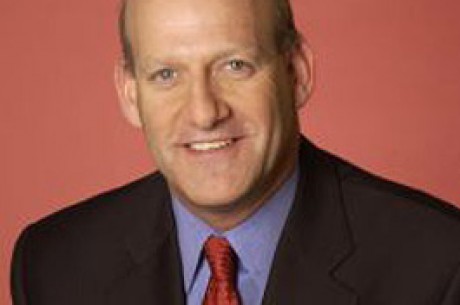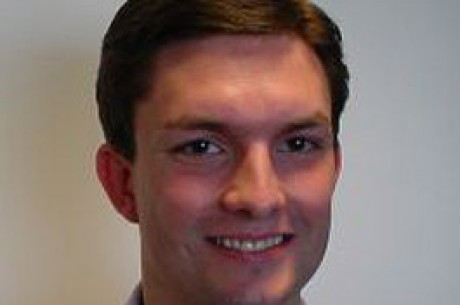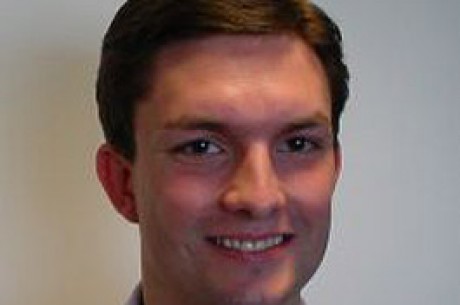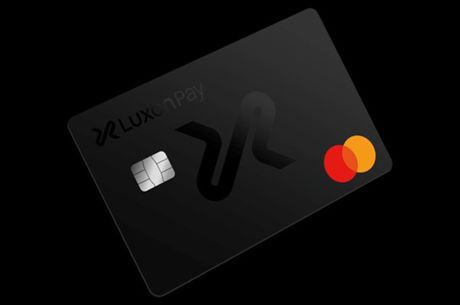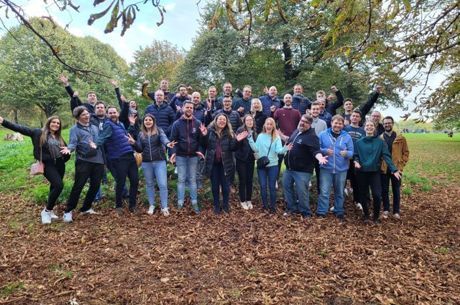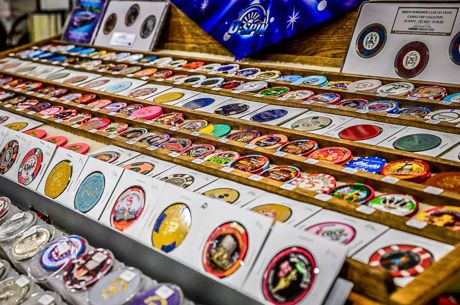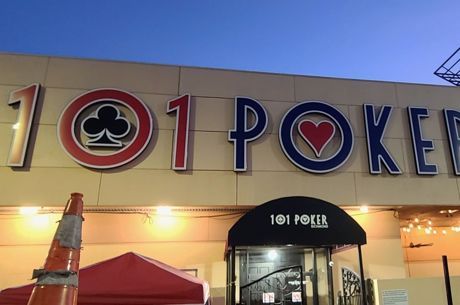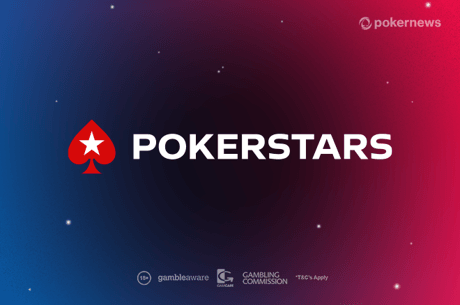The Business of Poker: Interview With Player Agent Brian Balsbaugh
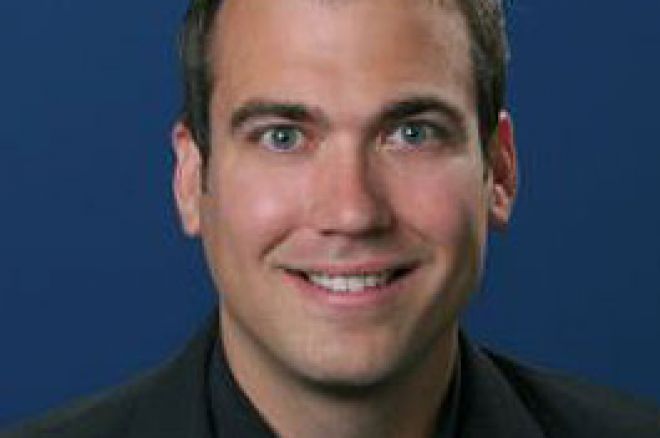
Brian Balsbaugh represents some of the biggest names in poker. With a roster that includes Daniel Negreanu, Phil Hellmuth, Erick Lindgren, and many more, Brian has filled a role in the new world order of poker - The role of agent.
Brian started his company, Poker Royalty, about two years ago in the basement of his Minneapolis home. Since then, the poker explosion has brought him to Las Vegas. In part one of this interview, Brian and I discuss the state of sponsorship, and what being an agent to the fastest rising group of celebrity nouveau - the professional poker player is like.
I will run part two of this interview one week from today where Brian and I discuss how the government deals with poker going forward, and the future of poker on television. Stay tuned.
John: Give me a little background on yourself, and how you came to do this.
Brian: Yeah, sure. I grew up in Indiana, small town, 30,000 people. Loved golf, huge passion in golf. Went to Indiana University, was not good enough to play on the college team, but, still wanted to in some way stay in the golf business or get into the golf business. And so I was a business major at IU, and then did an internship for American Junior Golf Association. The AJGA is a great company, awesome organization, learned an incredible amount about event management. I traveled around, and saw the country like the first time. You can imagine a small town guy, never been out of Indiana. Atlanta, Phoenix, Tucson, Aspen, New Orleans, Palm Springs, Vegas, Oklahoma City, Tulsa, Ashland Kentucky, Westchester New York, and back to Atlanta in one Summer, in a van.
John: Wow.
Brian: Running tournaments. And so it really opened my eyes that wow, there's a huge golf business here. Tiger Woods played in our tournament. Phil Mickelson played in our tournament. Justin Leonard played in our tournament. I mean it was really big time. So, it really gave me a taste of kind of the golf business, and it was a great organization. After business school, I still was thinking I want to get my law degree. I had some relatives who were attorneys, and seemed like they were living a happy life. So I went to law school, but couldn't shake the bug of the golf business, and then I came up with this idea - 'what about representing golfers as an agent?' It just occurred to me I could combine the business side and the passion for golf, but the legal side in it just seemed like it made sense. There weren't very many companies that were established and representing golfers in 1994 - five, six tops. One of them was a company called Signature Sports Group in Minneapolis, who represented Tom Lehman, who was the number one player in the world at that time from Minnesota.
So, I called them, after two years of law school during the summer, and said 'look I want to come up there and work for you for free for the entire summer'. They still didn't say yes. I had to drive my friend's car to Chicago, take the cheapest flight I could get to Minnesota, rent a car there, all to go meet this guy for lunch. After lunch finally he said ok. we'll let you work for us for free for the summer.
So then I was like 'how am I gonna get to Minnesota for the summer?' I don't have any money, right? So I had to enroll in a summer class to take out the student loan to get enough money to move to Minnesota.
John: To drop the class.
Brian: To drop the, yeah exactly, so that's what I did.
And, fortunately at the end of the summer, they hired me full time. So I went back to law school that fall and finished my third year and then went and worked for them full time. And then worked for six years and just kind of built up the client list. My role was primarily recruiting and representing the younger guys, y. Going out meeting the college kids and all that stuff, recruiting guys. And so did that for six years and just developed a really good skill set, and then I saw what was going on in poker. It was one of those you get that idea, and you just can't go to sleep at night. I mean I'm literally laying awake in my bed going wow, you know, I could really do this, this could really happen. I had that idea like Thursday, Friday, and then by the next week I pretty much told my company that I was leaving and, and started this one.
John: But you did the poker gig out of Minnesota for a while, did you not?
Brian: I did, yeah. I started and I was just one guy in my basement basically with this idea. Then I made some really key relationships and Daniel Negreanu was the first guy that signed on. Once Daniel signed, he's very well respected among a group of players, and then he helped me in a lot of ways sign a number of players that I represent. Certainly, I signed Phil Hellmuth, and that kind of opened a number of other doors too. So I did it in Minnesota from let's say September 2003 until February 2005. And then my family and I relocated here earlier this year.
John: Right. So what was the moment? Obviously you were banging away in your basement, doing your thing, trying to make it work. Was there a moment where you thought 'you know what, this is gonna work'. Not like a wishful thinking kind of thing, a moment where you sort of saw that there was a need, you'd filled the need, and you felt like you'd built a real business out of it?
Brian: I can't really pinpoint one moment, but I can pinpoint a timeframe. The first six months, I didn't make any money. No one was interested in doing anything in poker. If you can imagine Fall 2003, and I'm sort of calling them up going, I've got this guy Erick Lindgren and Daniel Negreanu, and they're like - "who??"
John: Right. Chris Moneymaker...what?
Brian: Exactly. I mean literally I couldn't get companies to return my phone call. But right around the 2004 World Series of Poker, and the media blitz that that continued to get, that was about my eight month mark, nine month mark, something like that. And I was fortunate because I had, already established a client list. I had already developed a business model. And I'd already pretty much laid out all the ways that I believed a poker player could make money off of the circuit. So when the phones really started ringing in that Summer of 2004 is when I could feel this wave of ok, I think this is gonna work. I've said this before - if I would have started six months earlier, I would have quit because I wouldn't have been able to sustain it. And, if I would have started six months later, there would have been that many more barriers to entry, where I wouldn't have been able to establish those relationships that I did. So, I probably wouldn't have been able to really make it then either. So it was the time, you know, in life timing is everything, it's a classic clich��.
John: Let's talk about how what you do on a daily basis has changed with the growing of your business. What do you spend most of your time on now that you didn't spend it on before? What's changed the most within the last year and a half for you?
Brian: When I first started this like I said, there really wasn't a lot going on. And fortunately, there were very little expectations on the players' side. So I was able to benefit from that. At the very beginning it was me just pounding the phones, calling everybody and anybody trying to get a poker player a personal appearance, or get a logo deal, or some type of licensing deal. And quite frankly, just kind of beating my head against the wall. But, I'd say now I spend most of my time managing my communication. Hundreds of emails a day, tons of phone calls a day, trying to communicate with the clients that I represent, all of their sponsors, which include most of the major online sites. The corporate sponsors that we're dealing with, all the licensing deals that we do, we've got a number of personal appearances going on. And there are certainly a lot of public relations/media requests for the players. I mean all of those things, and then maintaining a personal relationship with the people that you represent is, is a lot to do.
John: Let's talk about the people you represent. How has the mindset of the prominent or accomplished player changed since you started doing it? Because it strikes me that it's changed quite a bit.
Brian: It has. It's a total case-by-case situation. It's a very personal thing. But, there certainly is a higher level of expectation. What I always tell people is basically the players who have benefited the most from sponsorships and licensing deals and appearances, and things like that, are the ones who have worked the hardest. If you look at what Phil Hellmuth has done, and Daniel Negreanu, and Howard Lederer, and Doyle Brunson - those are guys who have worked really hard for a long time to build up their image and their name as a brand. They're not just guys who have played poker and been on TV once. They're guys who for years have written articles for magazines, have blogged on their website, have done media appearances for an absolute Podunk newspaper for no other reason than they want to be an ambassador for poker. And they've done that for a long, long time so they've been able to build up some credibility and awareness. Those are the guys who are probably reaping the most benefit here. And they're the ones that deserve to reap the most benefit. There's another level of player who have really kind of burst on the scene in the last couple of years. So, those players are getting opportunities primarily on the online stuff, and then the occasional corporate or personal appearances and things like that, maybe some licensing deals. But the ones who are really making the most money are the ones who have worked the hardest. I always get disheartened when I get tons of emails and phone calls, and I hear a lot of um chatter about a guy makes one final table appearance and now they have an expectation that all of a sudden they are worth something.
John: Right.
Brian: And we're certainly not to that point, you know? I mean if you look at it's like I think of the PGA Tour. In so many ways, there are so many similarities between the poker world, and the PGA. A guy wins one tournament on the PGA Tour, and he's going to get some reasonable endorsements, but he's not all of a sudden a super star. I mean you need to over time build up a great resume, and you need to be unique and all those things.
John: I think a great example might be Ben Curtis.
Brian: Ben Curtis, yeah.
John: Who won a major actually.
Brian: Won a major. Yeah.
John: And doesn't necessarily have the profile of a major winner.
Brian: I agree 100%.
John: Let's talk about life from a lifestyle issue of dealing with poker players. Do you get the 3:00 a.m. phone calls? Is that kind of stuff part of your life?
Brian: To an extent, my relationship is a business relationship with, with the players that I represent. I certainly have great personal relationships and consider most, if not all, of my people a friend. But for the most part they respect the fact that, I have a wife and I have a child, and they don't call me in the middle of the night with crazy requests. It's much more of a 'Hey what do we have going on right now?'...and then we go through all the things, and we talk about them. Our office here is like a revolving door of poker players coming in and out of here, and I spend a lot of time with them, and I see them. My cell phone's 24-7 certainly, but unless it's an emergency, I don't normally get the 3:00 a.m. phone calls now.
It was much harder for me when I was in Minnesota because everything was about the phone. Now that I'm here...For example, I've been to Bellagio all this week at the tournament, I see all the guys there, and I go over to Erick Lindgren's house and watch football on the weekends. I spend time with Daniel, and I see David Williams, and so they know they're gonna see me or they're gonna talk to me, and so it's not a major issue.
John: Let's talk about how the corporate world, where that's at and where do we think that can go with respect to corporate involvement. Not only with the players, but, are we any closer to Coca Cola or Chevy being on a player's chest, or is that even possible or relevant really?
Brian: Well there are a number of factors that play into that. If you could envision on the PGA Tour the vast majority of the top players. I want to say like twenty out of the top twenty-five players in the world have either Titleist, Nike, Callaway, or Taylor Made on their hat, as their major sponsor. In poker the major sponsor is always going to be the online site.
John: And five years from now, you think that is probably still gonna be the case? Interesting.
Brian: I think it's going to be the exact case. As long as poker, and online poker continues to grow and stay the way it is, it's gonna be the same way. Why wouldn't Coca Cola be on the hat of a major golfer? Why wouldn't they be on the hat of a major poker player? The reality is that the companies like the online rooms budget for it, and it means so much to them that they're willing to drive the price up so that when a Coca Cola evaluates that sponsorship opportunity on a player's hat versus other opportunities, it's just not as worthwhile to them. It's going to be a long time in my opinion before we see a mainstream Fortune 100 company willing to pay the amount of money for the primary logo that the online companies are gonna pay.
Having said that, now I believe there will be and there are a lot of opportunities for corporations to put logos on players as a secondary sponsorship opportunity. And we did that successfully this year with the Howard Lederer and Erick Lindgren deal. They both have Knob Creek on the side of their hats, or their left sleeve. So, that's one where they have the Full Tilt on their left chest as their primary sponsor, and then they have the Nob Creek additional logo, and it gets them great exposure as well. The big issue that we have now is that we can't do secondary logos on most things, in most tournaments. Right?
John: Right.
Brian: A huge step forward was the World Poker Tour allowing logos, but they only allow one logo. With the World Series of Poker, the rules seem to be a little bit in a gray area there. It's hard to go to a company and sell a sponsorship if you can't tell them on the front end exactly what they're going to get.
John: Absolutely.
Brian: So that's been a big barrier and it's still a big barrier, and we're certainly taking a step forward in getting some clarity on opportunities and things like that, but it's still a challenge. So now - where's the money going to come from? I believe that if you're a company, you're going to sponsor a player, it's much riskier than it is if you sponsor an event. So you can sponsor an event and you don't have to worry about the event itself, getting arrested for, you know drugs, or a DUI, or...
John: Compromising the integrity of your, brand - right.
Brian: Exactly. But you do when you hire and you work with an individual athlete. So Buick - they certainly have all these sponsorships events - sponsorships of PGA tour stops. But they don't have a stable of players. They have Tiger Woods as their one guy, but before him they didn't have many, if any at all. The way the sponsorship goes, it's typically a lot easier for a company to sponsor an event than it is player. So that's another thing that will play into when will we see the mainstream corporate sponsors in America.
Join us for part two of my interview with Brian, one week from today.

